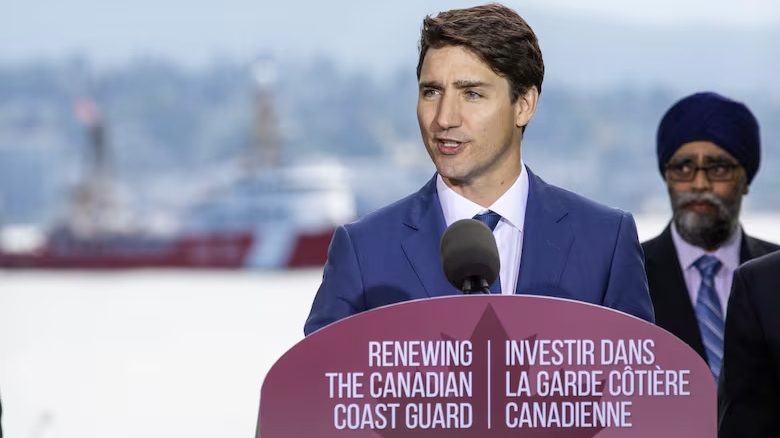Justin Trudeau's Legacy Draws Mixed Reactions from B.C. First Nations
Sarah Desjardins
1/8/20252 min read


Outgoing Prime Minister Justin Trudeau leaves behind a complex legacy in British Columbia, marked by major policy decisions on environmental conservation, Indigenous rights, and economic development. Over his nine-year tenure, Trudeau’s actions in B.C. garnered both praise and criticism from First Nations leaders and environmental groups.
Salmon Farming Transition
One of Trudeau’s most consequential moves was the decision to phase out open-net salmon farms on the West Coast, a measure intended to protect wild salmon stocks from disease and depletion. The phase-out, set to be completed by 2029, was hailed by some Indigenous leaders and environmentalists as a pivotal step for wild Pacific salmon.
Bob Chamberlin, chair of the First Nation Wild Salmon Alliance, applauded the government for acknowledging the importance of wild salmon.
“I’m grateful that we finally had a government that began to fully embrace the importance of wild Pacific salmon to British Columbians, Canadians, and First Nations.”
However, others, like Isaiah Robinson, deputy chief councillor of the Kitasoo Xai'Xais Nation, criticized the transition as too rushed. He argued that the $1 billion salmon farming industry is crucial to the economy of many coastal First Nations.
“More than half of our economy depends on salmon farming. While we support a gradual transition, a total ban is not realistic.”
The Trans Mountain Pipeline
Trudeau’s government’s purchase of the Trans Mountain Pipeline for $4.5 billion—and its escalating cost to over $34 billion—stands as one of his most controversial decisions. For many First Nations, the pipeline became a symbol of broken promises on climate action.
Rueben George of the Tsleil-Waututh Nation called it a betrayal:
“Climate change leaders do not build pipelines. Trudeau promised to protect our land and waters, but buying this pipeline is a stain on his legacy.”
Others pointed out the contradictory nature of Trudeau’s environmental policies, which included both advancing the pipeline project and implementing the carbon tax.
Reconciliation and UNDRIP
One of Trudeau’s most significant achievements in Indigenous policy was passing legislation to enshrine the United Nations Declaration on the Rights of Indigenous Peoples (UNDRIP) into Canadian law.
Heiltsuk First Nation Chief Marilyn Slett praised the government for policies such as the oil tanker moratorium on the North Coast and agreements protecting the Great Bear Sea, but said reconciliation efforts remain incomplete.
“We continue to experience violations of our land rights and sovereignty. Many promises remain unfulfilled, leaving First Nations to fight for their rights in courts.”
She also pointed to persistent boil water advisories and shortfalls in funding for child-care programs as evidence of gaps in the government’s reconciliation agenda.
A Legacy of Contrasts
Trudeau’s policies reflect the tensions between economic development, environmental protection, and reconciliation. For some, his actions symbolized meaningful progress; for others, they represented a series of compromises and unmet promises.
As B.C. heads into another election year, First Nations leaders like Chamberlin and Robinson say they are in talks with political leaders across the spectrum to ensure their priorities remain front and center.
“The next leader has to address these issues with greater commitment and clarity,” said Chief Slett. “Reconciliation is not a campaign promise; it is a necessity.”
News
Stay updated with the latest BC news stories, subscribe to our newsletter today.
SUBSCRIBE
© 2025 Innovatory Labs Inc.. All rights reserved.
LINKS
